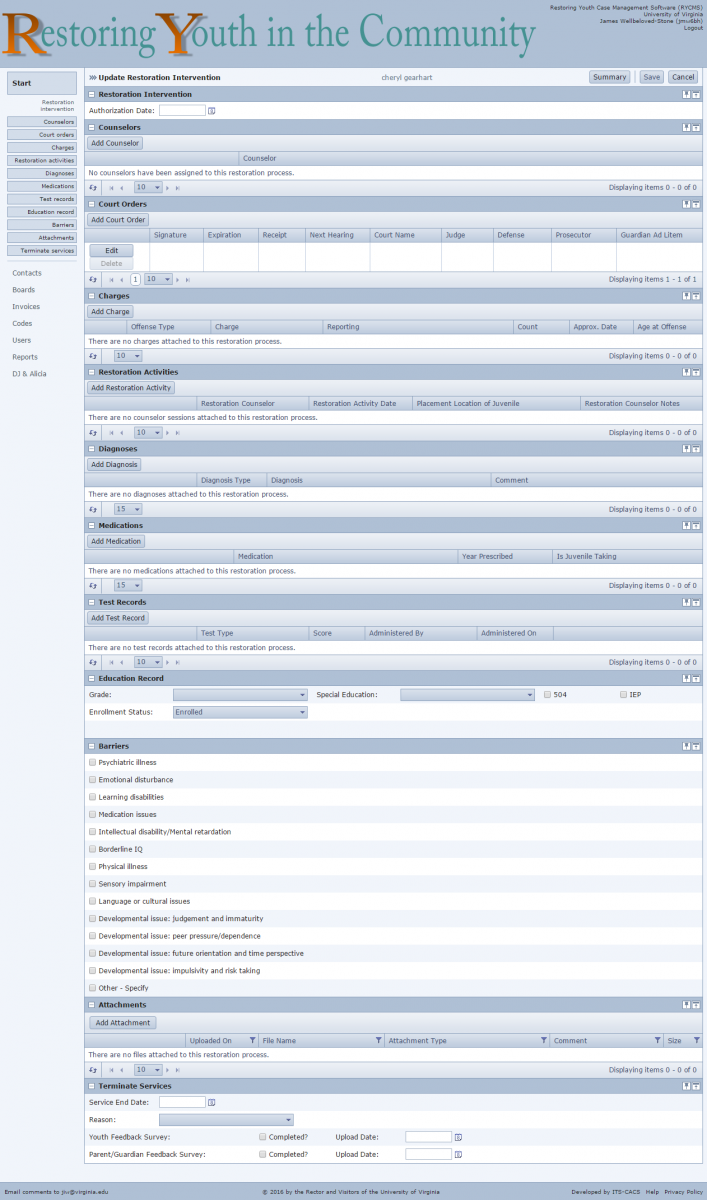Case Management Applications
Case management software was first developed Custom Application Consultation Services (CACS) at the University of Virginia to offer administrative and research support to localities and states that seek to implement the UVA juvenile attainment model. It is currently being transferred to a Salesforce platform, which will allow it to be used by all service providers on computers, tablets, and mobile devices. A billing component is also being developed to facilitate and standardize all billing transactions that may occur within some localities.
To the right is an example image of the "update restoration intervention" function. The full web-based application is designed to serve six primary functions:
-
To provide the program administrator a realtime overview of all service delivery activities occurring within the program with alerts about upcoming court data and court submission deadlines.
-
To facilitate the creation and storage of progress and supervisory notes of sessions conducted with youth in the community.
-
To provide a paperless and searchable repository for all case records, court orders, forensic evaluations, and progress and supervisory notes concerning each youth with varying levels of access by personnel based upon program role.
-
To provide session-based, educational, and case management activity logs; to facilitate billing of independent contractors; to assess program efficiency; and to tabulate cost of providing services to youth with different types and degrees of impairments.
-
To facilitate the creation of report forms for use in summarizing program activities and outcomes on a monthly or yearly basis.
-
To conduct outcome research to support the on-going evolution of an evidence-based program for offering remediation services to youth determined to be incompetent to stand trial.
Materials are trademarked and licensed by the Regents and Board of Visitors of the University of Virginia.
For more information, please contact Janet I. Warren, DSW, Professor of Psychiatry and Neurobehavioral Sciences, Institute of Psychiatry and Public Policy, University of Virginia, [email protected], or 434-924–8305.

